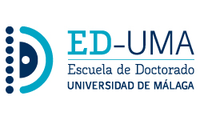Escuela de Doctorado Universidad de Málaga
 1
/
1
1
/
1

La Escuela de Doctorado de la Universidad de Málaga (ED-UMA) es el centro responsable de coordinar los Programas de Doctorado de la Universidad y de organizar una oferta integral de actividades orientadas a la formación, el bienestar y el desarrollo del estudiantado de doctorado. Su labor está alineada con las prioridades estratégicas de la Universidad en materia de formación doctoral, investigación, internacionalización y transferencia del conocimiento, promoviendo un entorno académico dinámico, internacional e innovador.
Actualmente, la ED-UMA cuenta con 29 programas de doctorado que abarcan todas las ramas del conocimiento, proporcionando una formación en investigación tanto especializada como interdisciplinar. Su objetivo es impulsar el avance del conocimiento y fomentar su transferencia, contribuyendo así a dar respuesta a los retos actuales de nuestra sociedad.

La EDUMA apuesta por el fomento de la internacionalización en el doctorado, como estrategia clave para elevar la calidad de la investigación, fortalecer la formación académica y ampliar las redes de colaboración científica. Para ello, facilita la realización de estancias de investigación en el extranjero, las colaboraciones internacionales y la realización de tesis en régimen de cotutela internacional. Esto permite, además, al estudiantado mejorar sus competencias interculturales y posicionarse en un entorno académico competitivo global, así como enriquecer su perfil profesional como personal investigador en formación.
ED-UMA Virtual





